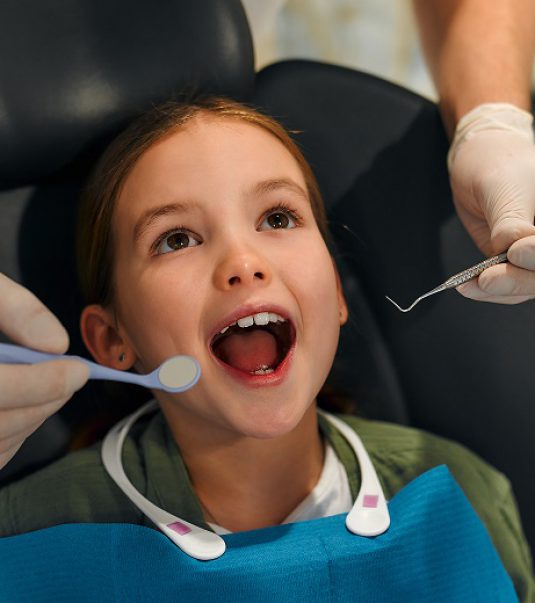Pediatric Dentist: Specialized Look After Your Child's Dental Health and wellness
A Comprehensive Guide to Pediatric Dental Care and Its Duty in Stopping Typical Oral Problems
Comprehending pediatric oral treatment is crucial for developing a structure of lifelong oral health and wellness in children. Early dental visits, proper dental hygiene techniques, and dietary awareness are important components that can substantially reduce the risk of usual oral problems such as tooth cavities and malocclusion. By equipping both caregivers and children with the necessary knowledge and abilities, we can cultivate healthy and balanced practices that advertise anxiety-free dental experiences. Yet, the question continues to be: exactly how can these methods be effectively executed to ensure enduring results?
Relevance of Very Early Oral Sees
Recognizing the importance of early dental gos to can establish the foundation for a kid's long-lasting dental wellness. Establishing a partnership with a pediatric dental expert as very early as the eruption of the first tooth, usually around 6 months old, is crucial. These first sees not just acquaint kids with the dental setting but also permit very early detection of prospective issues, such as imbalance or tooth cavities.
Early dental exams equip caregivers with beneficial expertise relating to proper dental care, nutritional recommendations, and the prevention of oral diseases. Pediatric dentists are knowledgeable in attending to the special requirements of children, making sure that they receive age-appropriate education and learning on oral health. Additionally, these sees give a possibility to review habits such as thumb-sucking and pacifier use, which can affect dental growth.
Crucial Oral Hygiene Practices
Developing a solid foundation for a youngster's oral health and wellness exceeds routine oral sees; it also includes instilling reliable oral hygiene methods from an early age. Caregivers and parents play a vital duty in teaching kids correct methods to preserve their dental health.

Flossing ought to begin when two teeth touch, as this protects against plaque build-up in hard-to-reach areas. Moms and dads need to assist their youngsters with cleaning and flossing up until they have to do with 7 or eight years old to make sure thoroughness.
Furthermore, developing normal oral examinations every six months permits specialist monitoring of oral health. Educating children the significance of oral health and making it an enjoyable, interesting task can foster long-lasting healthy and balanced behaviors that are essential in preventing typical oral issues.

Function of Nutrition in Dental Health
Nourishment plays a crucial function in maintaining optimum dental health, as the foods youngsters take in can considerably affect the advancement and stamina of their teeth. A well-balanced diet regimen abundant in essential nutrients is critical for building solid enamel and sustaining overall oral wellness (kid dentist near me). Key nutrients, such as vitamin, calcium, and phosphorus D, are crucial for the formation of healthy teeth and bones. Foods like dairy items, leafy greens, and fortified cereals can boost calcium and phosphorus levels, while exposure to sunshine or dietary resources of vitamin D can improve calcium absorption.
On the other hand, a diet regimen high in sugars and acids can lead to detrimental effects on dental wellness. Sweet treats and beverages can promote the development weblink of hazardous microorganisms in the mouth, resulting in boosted level of acidity and a higher threat of dental cavity. It is necessary for caretakers to encourage healthier snack alternatives, such as fruits, vegetables, and entire grains, which not only offer needed nutrients however also promote saliva production, additional protecting teeth.
Common Dental Troubles in Kid
Dental health concerns are a common worry for lots of parents, as children can experience a selection of problems that may affect their oral health. One widespread concern is oral cavities, or tooth cavities, which develop from the demineralization of tooth enamel as a result of acid-producing microorganisms. This problem is frequently intensified by bad dietary habits, such as frequent intake of sugary treats and drinks.
One more usual issue is malocclusion, where teeth are misaligned, causing problems in biting, eating, and talking. This can result from genetic factors or habits such as thumb sucking and long term pacifier use. In addition, gingivitis, an early kind of gum tissue illness, can occur in children, often due to poor oral health practices. It is characterized by red, puffy gum tissues that may hemorrhage throughout cleaning.
Tooth injuries, consisting of cracks or avulsions, are likewise constant among energetic children. These can arise from drops, sporting activities, or crashes. Early identification and treatment are essential in taking care of these troubles to stop more complications. Regular dental exams play an essential role in identifying and attending to these usual oral issues effectively.
Building Lifelong Dental Habits
Instilling good dental hygiene techniques early in life establishes the structure for a life time of healthy teeth and gums. Establishing a constant regimen for brushing and flossing is essential; children must comb their teeth two times a day with fluoride tooth paste and begin flossing as soon as 2 nearby teeth touch. Moms and dads play a crucial role in modeling these actions, as children commonly mimic grown-up techniques.
Informing kids regarding the significance of dental care can further enhance these practices. Usage interesting approaches, such as stories or interactive video games, to help them understand why normal dental gos to and proper hygiene are essential. Additionally, presenting a balanced diet low in sugar can substantially reduce the risk of tooth cavities and advertise oral health.
Normal dental exams, generally suggested every 6 months, give a possibility for expert advice and very early detection of prospective problems. These visits can also aid children construct a positive organization with dental care. By cultivating these practices and mindsets from a young age, moms and dads can equip their youngsters to take obligation for their oral health, inevitably bring about a life time of Click Here certain smiles and minimized dental problems.
Conclusion

Early oral gos to, appropriate oral health methods, and nutritional awareness are critical parts that can significantly reduce the danger of typical dental issues such as cavities and malocclusion.Early dental check-ups encourage caretakers with valuable understanding relating to proper oral care, dietary suggestions, and the avoidance of dental conditions. Routine oral exams play an essential duty in discovering and attending to these common oral issues properly.
Early dental sees, along with the implementation of efficient oral health methods and appropriate nutrition, substantially contribute to the avoidance of typical dental troubles such click here for more as cavities and gingivitis. By instilling favorable dental routines from a very early age, children are extra likely to experience healthy and balanced teeth and periodontals throughout their lives, eventually fostering a culture of dental health and wellness that can be maintained into the adult years.